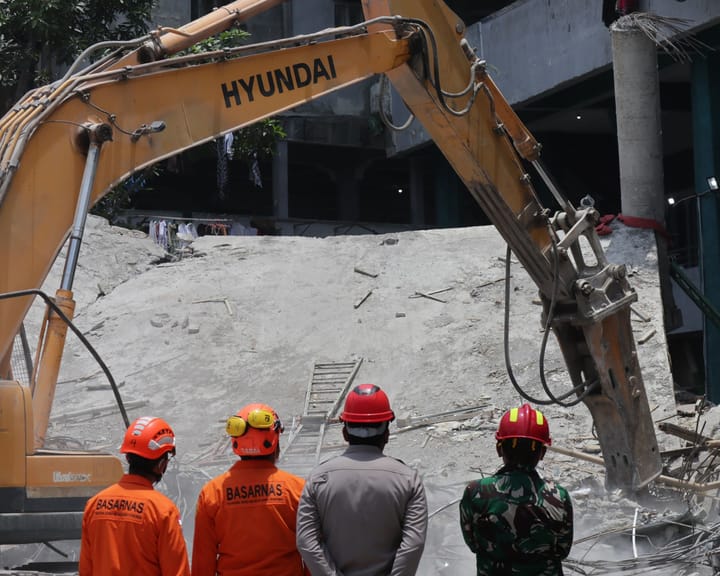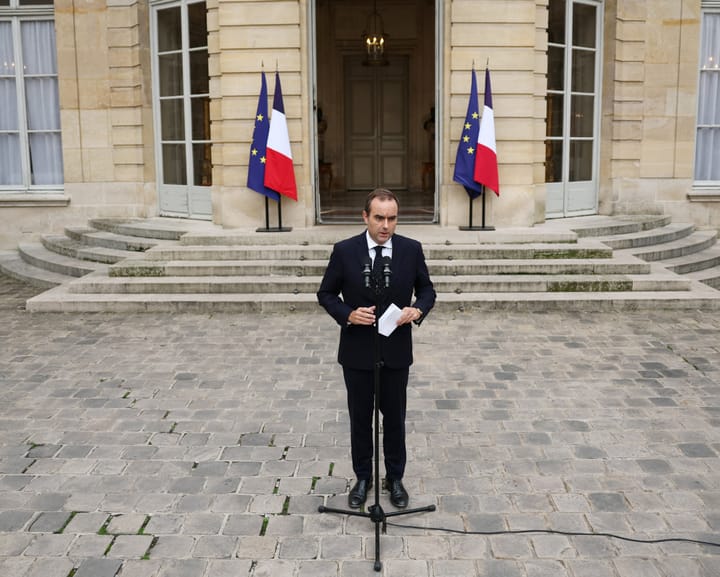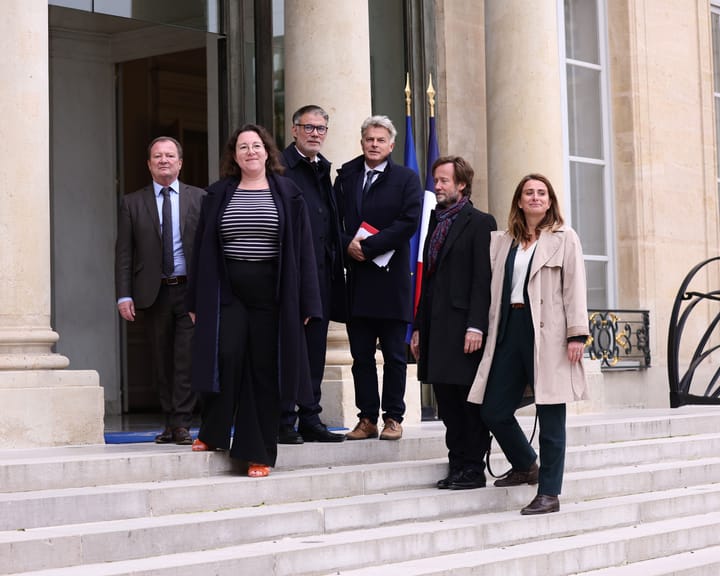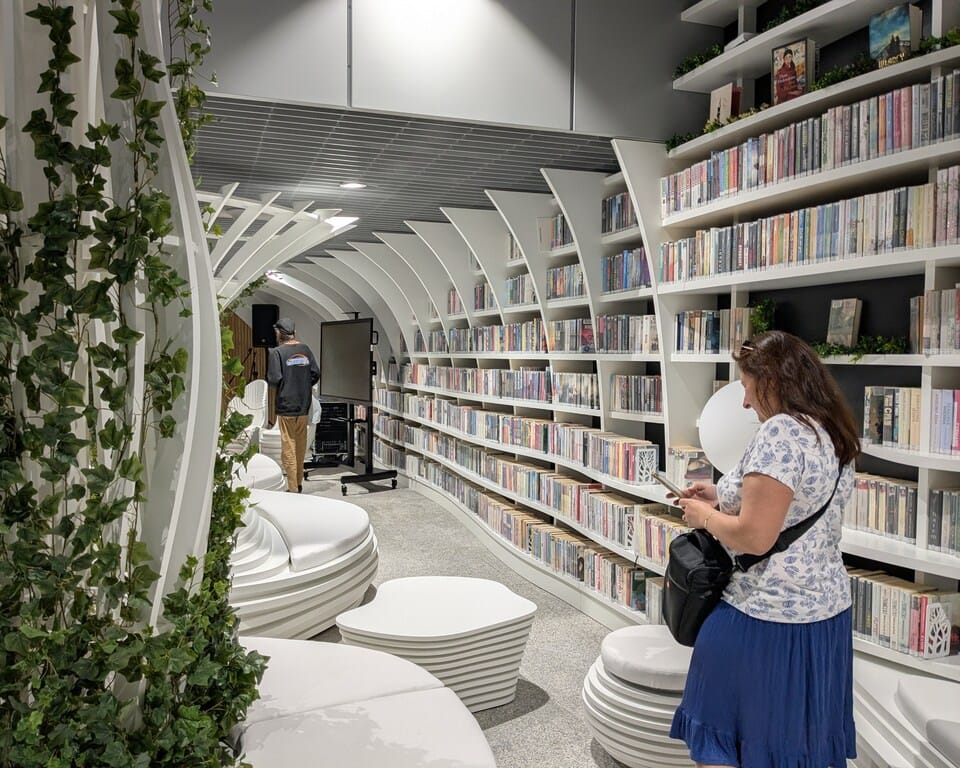A new "express" library has opened in a Warsaw metro station, offering a cultural space designed to encourage commuters and residents to take a break from screens and enjoy books, along with a touch of greenery from a vertical herb garden.
The facility, named Metroteka, recently launched at the Kondratowicza M2 station in the Targówek district. It includes separate reading zones for adults and children, as well as an area for public discussions and events.
Spanning 150 square meters, the library holds around 16,000 books available for quick borrowing through a contactless self-checkout system. Returns can be made at the station or via a 24/7 outdoor book locker.
Visitors can use the shared workspace, borrow a laptop for internet access, or relax with a free coffee or hot chocolate after their metro ride.
The space also features a hydroponic garden wall, growing herbs like basil and oregano, as well as flowers such as nasturtiums and pansies—all thriving without natural sunlight or soil.
"Our vision is for Metroteka to evolve into an educational and cultural hub rather than just a book-lending spot," says Grażyna Strzelczak-Batkowska, deputy director of Targówek library. The garden, for instance, will host discussions on food security, sustainability, and climate solutions.
She notes that the underground location makes books more accessible for busy commuters, saying, "Books aren’t fragile—you can grab a few, check them out quickly, and start a new adventure."
On its opening day, over 400 books were borrowed, including school recommendations, travel guides, and instructional manuals.
The initiative seeks to boost reading rates in Poland, where the National Library’s latest survey found only 41% of respondents read at least one book in 2024—down from over 50% in previous decades, as digital entertainment gains prominence.
While Poland’s reading levels exceed those in southern Europe, they trail Nordic countries and the Czech Republic, according to National Library director Tomasz Makowski. He attributes this partly to WWII losses—70% of libraries were destroyed—creating generations less exposed to home libraries.
"Reading isn’t strongly tied to adulthood here; it’s often linked to schools or parents reading to children," he says. Placing a library in a metro station, he adds, helps shift that perception: "It’s a dream come true for us."
Read next

"Indonesia school collapse: rescue efforts conclude with 67 fatalities"
Search Ends After Indonesian School Collapse Leaves Dozens Dead
Indonesian rescuers concluded their search on Tuesday for victims trapped beneath the rubble of a collapsed Islamic boarding school in East Java, after recovering more than 60 bodies, authorities confirmed.
The tragedy in the town of Sidoarjo struck last week when

"French PM makes last-ditch effort to save government as crisis deepens – Europe updates"
France's Political Standoff Continues as Prime Minister Seeks Cross-Party Support
France remains at a political stalemate as the outgoing prime minister, Sébastien Lecornu, makes a final attempt to gather support from rival parties for a new government.
President Emmanuel Macron assigned Lecornu, 39, to form a government in

"Macron calls emergency talks with parties to swiftly pick new PM"
Emmanuel Macron has called upon the leaders of several political factions to his office, urging them to demonstrate "collective responsibility" as he seeks to appoint a new prime minister amid growing political turmoil.
All parties except Marine Le Pen’s far-right National Rally, the largest opposition group, and

